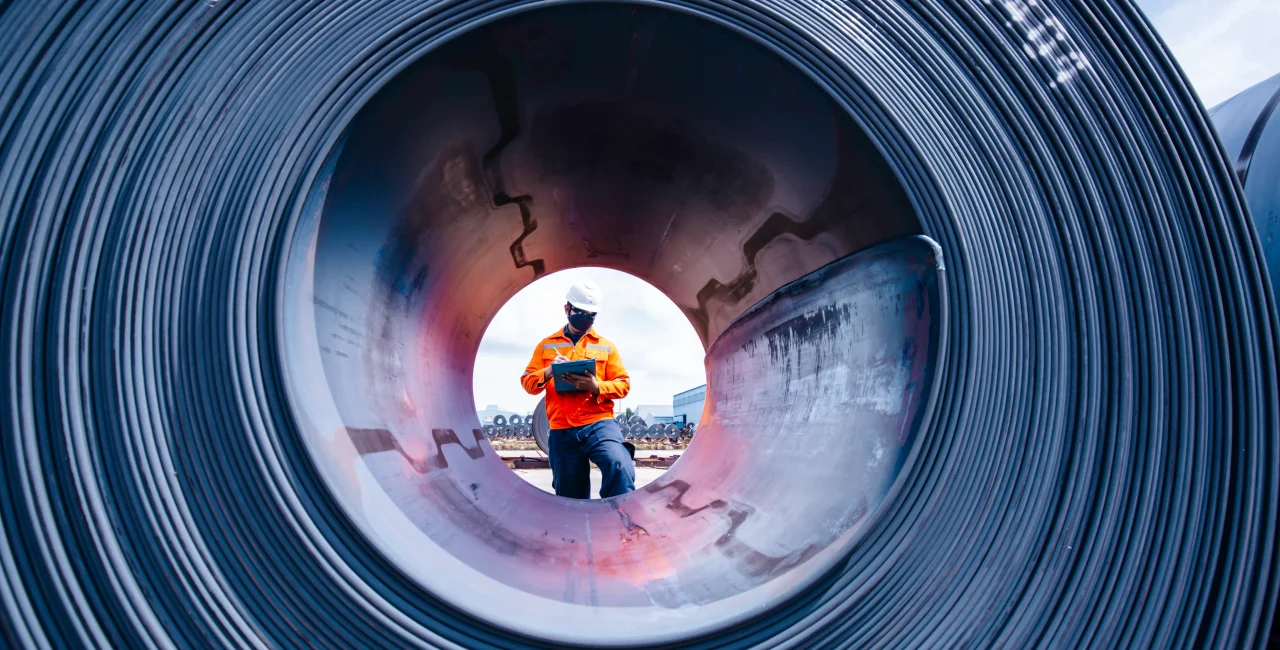Czech steel companies are raising concerns that new U.S. tariffs on steel and aluminum imports will further strain Europe’s already struggling industry. Industry leaders are urging the EU to take protective measures, placing their hopes on the European Commission’s upcoming Steel Action Plan, set for release later this month.
Last month, U.S. President Donald Trump announced a 25 percent tariff on steel and aluminum imports, applicable to all countries, taking effect on March 12.
PARTNER ARTICLE
"We fear these tariffs will increase pressure on the European market and further weaken an already struggling industry," said Radek Strouhal, CEO of Ostrava-based Vítkovice Steel (VS).
Petra Macková Jurásková, spokesperson for Třinec Ironworks (TŽ), highlighted European steelmakers’ longstanding calls for stronger market protections. "European companies can’t compete on price with cheap Asian imports. The market is already under heavy price pressure, affecting not just steel mills but the entire automotive industry," she said, adding that high energy costs further inflate production expenses.
While the U.S. accounts for only 1-2 percent of TŽ’s total exports—mainly rails and seamless steel pipes—Macková warned of indirect consequences. "Manufacturers shut out of the U.S. market will redirect their exports, likely to the EU, where demand is already weak," she explained.
Strouhal added that the issue extends beyond direct Chinese exports. "China bypasses trade barriers by using factories in Indonesia and other countries," he noted.
To address these challenges, Czech steel companies are engaging with national and European organizations, including the Czech Steel Union, EUROFER (European Steel Association), and the European Steel Processors Association. Strouhal acknowledged growing political support but stressed the need for concrete actions.
"We’re pushing for swift, effective protective measures in Europe," said VS spokesperson Jana Dronská. "Existing safeguards must be updated to reflect market conditions, and regulatory changes are needed to boost European competitiveness."
Energy costs remain a major concern, with industry leaders advocating for long-term solutions.
On March 4, top EU officials, including European Commission President Ursula von der Leyen, met with key steel sector stakeholders in Brussels to discuss the industry's future. Marcela Kubalová, Chairwoman of the Board of Directors of the Steel Union, noted a growing recognition of the issue’s urgency.
Following the meeting, von der Leyen assigned Executive Vice-President Stéphane Séjourné to present an Action Plan for Steel and Metals on March 19. The plan is expected to focus on supporting low-emission steel production, protecting against unfair imports, and establishing long-term industry safeguards.












 Reading time: 2 minutes
Reading time: 2 minutes 


























